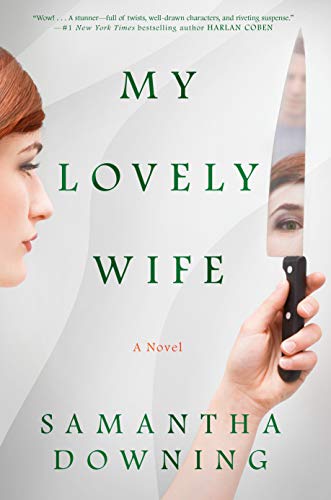When you’re driving east from Thunder Bay, you want a full tank of
gas. It’s eight hours to Sault Ste. Marie – 690 kilometer (430 miles), and
there aren’t a lot of gas stations in between. I gassed up along the way in
Terrace Bay so by the time I reached White River, I needed more. But I had a
plan. I wasn’t going to get a full tank because I planned to return home by way
of the Upper Peninsula of Michigan and gas was cheaper in the States. I just
needed enough gas to get me to The Sault.
The other
issue on that part of the TransCanada is moose. They’re a night hazard,
according to the frequently posted signs, but I don’t believe that the moose
have read the sign. My sister and I once drove from Hornepayne south to the Sault and
counted 34 moose in two days, all in broad daylight. Thankfully they were posing for photos in
the lakes and streams off the road and not square in the centre of the highway.
On this
trip, my last stop was for supper at eight p.m. in Wawa, then east toward Sault
Ste. Marie. An hour out of Wawa I glanced down at the gas gauge. My heart might have
stopped momentarily. The needle was at the one-eighth full mark. There may have
been liberal use of profanity but I won’t go into detail here. There was
something not quite right about one voice in my brain reciting George Carlin’s
“Seven Words that Can Never be Said on Television” at the same time as another
voice in my brain was beseeching the heavens for aid.
What to do,
oh, what to do? I’d misjudged my needs because I had the air conditioning
cranked up. Okay, first order of business – turn off the a/c.
My mind
raced to think of other possibilities: coasting down hills with my foot off the
pedal. Yes, that certainly sounded good to me.
Third idea
was to tuck myself in behind a transport truck. This had something to do with high
school physics, which I failed. But for some reason to do with pull or drag or
aerodynamics, if you tuck in behind a big rig, you use less gas.
Also, if a
moose crossed the highway, the truck would hit it, not me. Then again, if the
truck did hit a poor moose, and I was too close, I might not be able to brake
fast enough and I’d plough into the back of the truck.
Fourth idea
was to lighten my load. I’d purchased a number of garden rocks to enhance our
garden. Should I throw those rocks out the window? Nope. I’d paid good money for those rocks. My
other ideas would have to suffice.
And then the
low fuel light appeared, and my car gave a little Ding.
If I thought
I was panicking before, now I was freaking out. I began to pray to my late
mother and father, the saints in the heavens, angels, Jesus, God, anybody who
had the time to listen.
Stop. Did I
say my late mother? Oh, no, I couldn’t pray to her. How many times had she
said, “A car runs just as well on the top half of the tank as it does on the
bottom half”? How many times had I seen her eyes begin to dart about, looking
for a gas station, if the gas gauge came within a hair breadth of the halfway
point? No, I couldn’t pray to Mom.
Dad would be
a far better choice. He wouldn’t want to see his little girl stranded. Mom
would be saying, “Serves you right. Maybe you’ll learn a lesson”.
I slowed
down as I went through every village, looking through the growing darkness for
a service station. I saw only one and it was closed for the night or had gone
out of business for good.
If I
remembered my owner’s manual correctly, when the alarm sounded, I had 2 gallons
of gas left in the tank. If my car got 35 miles to the gallon, then I had 70
miles worth of gas or roughly 100 km, so by now I had about 90 kilometres left.
But...what if I remembered incorrectly? What if the manual said I had 2 litres
left, not gallons? Forget whether it was imperial or U.S. gallons, divide by 4
and I had roughly 25 kilometres of fuel. Which one was it – gallons or litres?
Did it really matter? Empty is empty.
It was time
to think of what to do if, God forbid, I ran out of gas. I did have a cell
phone and I did have road side assistance but cell phone service is spotty in
places with more moose than people. Okay, worst case scenario (and I couldn’t
help but think of the worst), I would have to spend the night just off the
road. If I rolled down the windows a bit, it wouldn’t be too hot, but mosquitos
would get in. Plus, there were bears. With the windows down a bit, a bear could
get his claw in, rip off the window, and drag me out of the car where he would
enjoy the most unique meal of his life – somewhat aged, more fat than muscle,
but tasty all the same.
Then, there
were the two-legged threats. Some big, evil, smelly, ugly person might come
along and offer help but demand an unspeakable payment in return. My imagination was in overdrive.
And then I
saw the light. No, no, no, not THAT light. Very bright lights clustered
together that could be a gas station. Dared I hope? Could it be? “Oh please,
please, please, let it be a gas station”.
Yes!
I pulled
into the Goulais River filling station – Open 25 hours, according to the sign.
It was also
a full service station. No problem. I’d pay the extra 4 cents a litre. I was
not even going to ask if they gave AirMiles. The young man approached the car
and I panicked again. What if he was coming to tell me that they had run out of
fuel?
“I have the
car, then the truck, and then you.”
“Not a
problem,” I said. “Take your time. I just thank Jesus I made it here without
running out of gas. I”ve gone 28 kilometers since the low fuel light came on”
“Ooh, that’s
pushing it.”
Trust me, I’d
already figured that one out.
Shortly
after I left the gas station, I saw a sign that read Sault Ste. Marie 18 km.
Could I have made it on the fumes remaining in my fuel line? I’ll be forever
grateful I didn’t have to find out.
Cheryl M. Taylor is retired and living in
Mississauga with her husband and two fur babies. Her stories have been
published in various gardening journals and newsletters, once before on Brian
Henry’s blog Quick Brown Fox, and once in Chicken Soup for the Soul. Being an
avid cinephile, she eagerly shares her reviews of new releases with family and friends.
See Brian Henry’s schedule here, including writing workshops, weekly writing classes, and
weekend retreats in Algonquin Park, Alliston, Bolton, Barrie, Brampton,
Burlington, Caledon, Collingwood, Georgetown, Georgina, Guelph, Hamilton,
Jackson’s Point, Kitchener-Waterloo, London, Midland, Mississauga, New
Tecumseth, Oakville, Ottawa, Peterborough, St. Catharines, Sudbury, Toronto,
Windsor, Woodstock, Halton, Muskoka, Peel, Simcoe, York Region, the GTA,
Ontario and beyond.





















